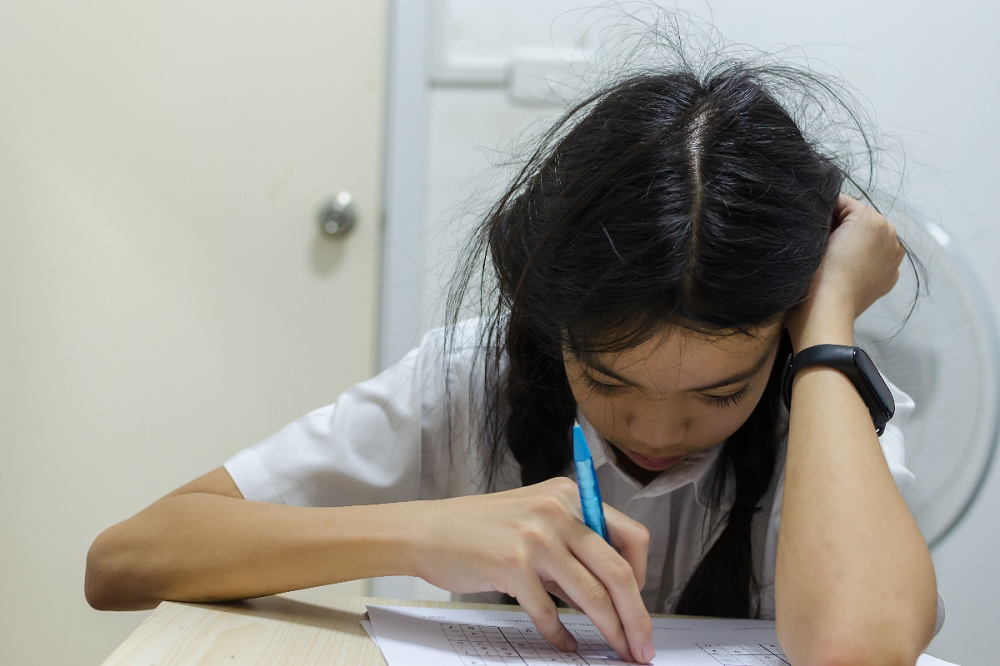
Children in Taiwan are Less Happy Than Before—Results of the 2024 Child Well-Being Survey
The 2024 World Children’s Day reminded people worldwide to respect children’s rights. However, in today's challenging era, children are facing considerable pressures in their lives. With the widespread use of digital technology, increasing academic competition, and the life pressures brought about by social changes, the well-being of modern children is being challenged like never before. Child Welfare League Foundation (CWLF) announced the results of the latest 2024 Child Well-Being Survey, revealing the continuous decrease in subjective life satisfaction of Taiwanese children. CWLF urges the government, parents, and schools to pay attention to children’s well-being and take action to support them. It is our collective responsibility to ensure children’s happiness and healthy development.
Taiwanese Children's Well-Being Score Hit a Record Low, Falling 7 Points Short of the International Average
CWLF’s survey results reveal that Taiwanese children's average subjective life satisfaction score is only 68 points, representing a decrease of 5.5 points compared to 2023. This score is 7 points lower than the international average shown in the Health Behavior in School-Aged Children (HBSC) study and has been decreasing in the past 3 years. It is worth noting that older children rate lower on subjective life satisfaction than younger ones, indicating that as grade level increases, so does students’ life stress.
Also, in the 2024 survey, only 69.5% of Taiwanese children have a subjective life satisfaction score of 60 or higher, showing a drop of 9.6 percentage points compared to 2023. This result indicates a gradual decline in the wellbeing of Taiwanese children, a trend that should not be overlooked.
Children’s Sense of Emotional Solitude Has Intensified, Reaching a New High in Recent Years
The fast pace of modern society and the growing detachment in interpersonal relationships have left an increasing number of children feeling lonely and helpless. While the rise of social media has made communication more convenient and efficient, it has also contributed to a disconnection from the real world. Children become obsessed with virtual social interactions at the expense of face-to-face interactions, which intensifies their sense of emotional solitude.
Additionally, weak family relationships play a significant role in this issue. With parents preoccupied with their work commitments, parent-child communication becomes limited, which leaves children feeling insecure and disconnected. This lack of emotional connection makes children more vulnerable to feelings of isolation and loneliness.
The survey results show that 37.4% of the children agree with the statement, “It does not matter if I do not exist in this world.” This percentage is not only 9 percentage points higher than that in 2023, but also the highest in the past 3 years, indicating that emotional solitude has become a prevalent problem. Especially among junior high school students, the percentage of students who agree with this statement reaches 41.7%, 8.5 percentage points higher than that among elementary school students (33.2%). Also, 13.7% of children are not happy with their current life.
The Surge in Children’s Academic Pressure and Concerns about the Future Are Affecting Their Well-Being
In the 2024 survey, 75.9% of Taiwanese children consider schoolwork stressful, a sharp increase of 31.4 percentage points compared to 44.5% in 2023. The percentage of elementary school students who consider schoolwork stressful (78%) is even higher than that of junior high school students (73.8%).
Further investigation on the sources of academic pressure shows that elementary school students find it most stressful to do their homework (22.7%), while junior high school students find it most stressful to think about their future (28.5%). This result indicates that as children age, the main source of their pressure switches from concrete learning tasks to concerns about the future.
Academic pressure is suffocating children, not only depriving them of leisure time but also eroding their interest in learning. If they remain in such a high-stress environment for an extended period, their physical and mental health will be severely affected.

Children are Addicted to Video Games and Lost in the Virtual World
The prevalence of digital devices has made children’s lives more convenient, but it has also raised concerns. The survey results show that 20.8% of children spend at least 6 hours a day playing video games, with 9.4% of children spending more than 8 hours a day playing video games. It is worth noting that 24.5% of children feel that there are times when they can only think about playing video games and are unable to focus on anything else. A similar percentage of children (24.6%) are unable to reduce the time they spend on video games despite having been reminded many times. Being overly addicted to video games can hinder children’s ability to focus and their social skills and can even lead to psychological problems. It is important for children to find a balance between schoolwork and leisure activities, and to prevent video game addiction.
Sleep Deprivation is an Invisible Killer that Affects Children's Physical and Mental Development
Sleep deprivation has become an invisible killer that affects Taiwanese children's physical and mental development. According to the American Academy of Sleep Medicine (AASM), the recommended sleep duration for teenagers aged 13-18 is 8-10 hours per day. In our survey, Taiwanese children have an average daily sleep duration of 8.01 hours on weekdays and 9.59 hours on weekends, indicating that they make up for weekday sleep deficits by sleeping longer on the weekends.
The average daily sleep duration of junior high school students is only 7.58 hours on weekdays, which is 0.85 hours less than that of elementary school students. As the grade level increases, sleep problems become more severe. The rise in academic pressure might force children to sacrifice their sleep. Meanwhile, the blue light emitted by electronic devices such as smartphones and tablets disrupt children's sleep cycles and reduce their precious sleep time. Chronic sleep deprivation not only leads to difficulty concentrating and memory decline, but it can also contribute to emotional issues and negatively impact physical health.
Positive Family Relationships Matter for Healthy Development
Despite the above-mentioned findings, this survey also reveals some positive information. Sixty-three percent of children have meals with their family members every day. The percentages of children who find it easy to share their worries with their mothers and fathers are 70.8% and 55.4%, respectively. These three indicators have all improved considerably compared to last year.
Positive family relationships are crucial to children’s physical and mental health. Although children nowadays are faced with a variety of stressors, the improvement in family relationships is undoubtedly a buffer that helps alleviate the overall pressure. As the frequency of children having meals with their families increases, parents can put aside their busy work to spend quality time with their children and understand them better. Quality time spent together naturally shortens the distance between parents and children, allowing parents to build a strong support system for their children.
CWLF’s Appeals for More Attention to Children’s Stress and Emotions and More Actions to Help Them Thrive
The results of the 2024 Child Wellbeing Survey show that Taiwanese children are faced with heavy study loads, insufficient sleep, feelings of emotional solitude, depressive feelings, addiction to online games, and dissatisfaction with their own lives. These negative situations can be detrimental to children’s long-term physical and mental health.
Children have the right to grow up happy and healthy. CWLF urges parents and schools to pay more attention to children’s daily lives and emotional stress through the following approaches:
- Prevent children from falling into the “more sleep, more fatigue” cycle: Article 31 of the Convention on the Rights of the Child stipulates children’s right to rest and leisure. Insufficient sleep not only makes children fatigued and interferes with their learning, but also intensifies emotional distress. Compensating for insufficient sleep on weekdays by extending sleep duration on weekends can lead to the vicious cycle of “more sleep, more fatigue.” It is recommended that parents help children cultivate healthy sleep habits to ensure sufficient rest and sleep.
- Help children avoid sedentary lifestyles: Children often stay at home browsing the internet, playing video games, and texting as ways to relieve daily academic pressure. Maintaining sedentary postures for prolonged periods and excessive screen time are causing a gradual decline in children's physical strength and overall health. It is recommended that parents and children cultivate shared hobbies, build regular exercise habits, and arrange outdoor activities. These behaviors can help reduce academic pressure, provide a break from screens, and maintain physical strength.
- Talk with children more frequently and provide them with positive encouragement and help: Parental support has a particularly significant impact on adolescents' mental health. However, teenagers often experience conflicts with their parents and feel misunderstood. It is recommended that parents spend more time interacting and talking with their children. When children take the initiative to share the difficulties they face, parents can provide positive encouragement and help.
- Expand online counseling resources and improve the accessibility of school-based counseling services: According to CWLF’s 2022 Survey on Taiwanese Children’s Mental Health and Counseling Resources, 5% of children refuse to go to the school counseling center due to a lack of time, a long distance from the classroom, and inadequate privacy protection. It is recommended that schools strengthen the promotion of counseling services, adjust counseling session hours to better accommodate students, and enhance the privacy of students who use counseling resources. Introducing one-on-one online counseling resources can provide children with immediate support whenever they encounter emotional challenges.
- Incorporate mental health assessment into routine check-ups: Physical discomfort in children can be observed with the naked eye, but mental health issues are much harder to detect. It is recommended that the government incorporate mental health assessment into routine check-ups. Conceptually similar to the “eye health passport,” a “mental health passport” can be provided to children so they can learn about mental health knowledge, fill in the simplified version of the mental health assessment questionnaire, and gain information about relevant counseling resources. For high-risk children, there should also be regular check-ups, timely referrals, and long-term follow-ups to ensure that their physical and mental health are continuously monitored.
- Use CWLF’s resources: CWLF provides a child hotline, youth hotline, and LINE@ online chat services for students in Taiwan to talk about various concerns with social workers. The “mental health passport” is a mental health protection tool tailored to students’ needs. Through simple self-assessment and record-keeping, children can better understand their own emotional states, identify mental health issues early, and improve their communication with family members and teachers.
Line@ Chat Service: @youthplus_cwlf
Child hotline: 0800-003-123 (16:30-19:30 from Monday to Friday)
Youth hotline: 0800-001-769 (16:30-19:30 from Tuesday to Friday)
Mental Health Passport: Link to download


